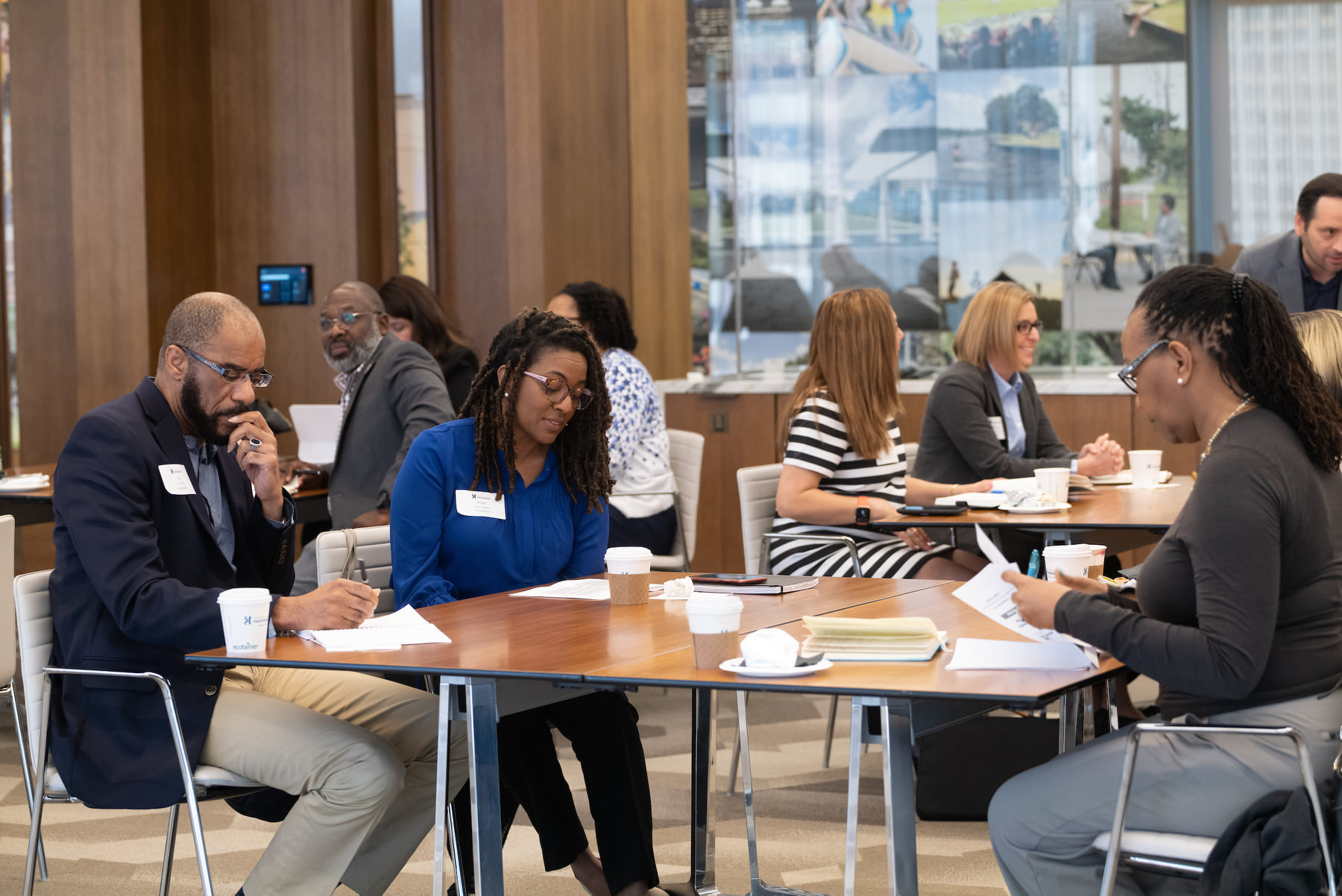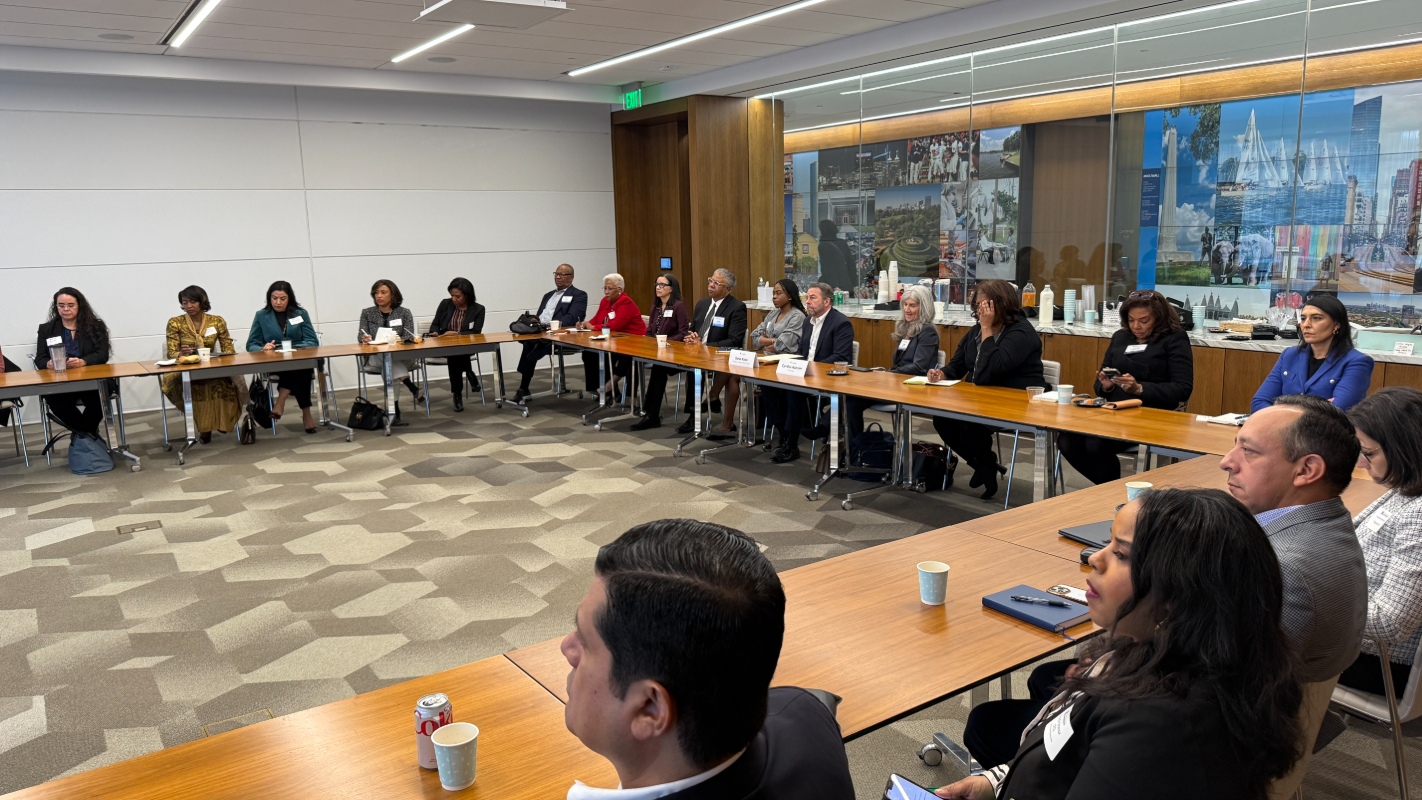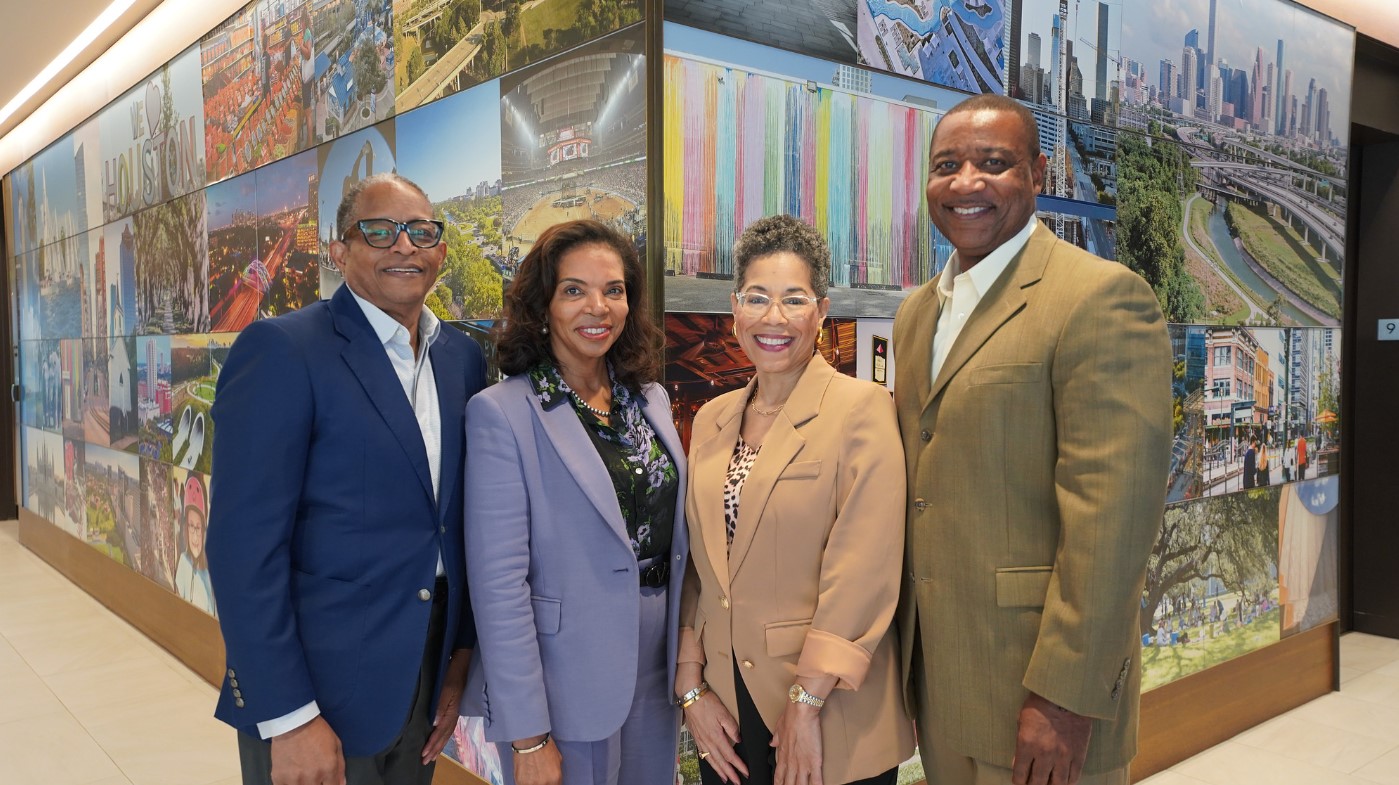One Houston Together: Member Spotlight on Bank of America’s Efforts to Advance Underrepresented Talent
Published Jul 29, 2022 by A.J. Mistretta
As part of its ongoing effort to showcase success in the retention and advancement of Black, Indigenous, and People of Color talent, the Partnership’s One Houston Together hosted its latest roundtable discussion in July featuring a conversation with Tiffany Douglas, Global Women’s Initiative and Under-represented Talent Strategy Executive with Bank of America.
Increasing racial equity in the corporate talent pipeline and board leadership is one of the two priorities of One Houston Together alongside increasing spending with Minority Business Enterprises. The roundtable discussions are designed to share best practices and showcase Partnership members that are leading change.
Here are several key takeaways from the conversation with Tiffany Douglas at Bank of America.
- Douglas’ team works with internal and external partners to help drive advocacy for women and underrepresented talent. Bank of America has an intentional strategy to ensure diverse voices and talent are at the table for more responsible growth. The goal: reflect the communities and clients the bank serves.
- Douglas emphasized that it takes intentional practice to create change and improve outcomes. She shared that it’s not a question about if we do this but how the bank does it. This charge is supported by the board of directors, CEO, management team, Global Diversity & Inclusion Council, Executive Councils, Market Presidents in 92 markets, and all employee networks. The bank seeks to drive inclusion “everywhere” not just in go to market products.
- While approximately 40 professionals across an organization with roughly 200,000 employees are working in D&I through various lines of business and the bank’s Global Diversity and Inclusion Council, Bank of America’s philosophy is that everyone is part of driving inclusion.
- Bank of America uses a number of tools to assist with connecting and empowering employees across the organization including on demand online learning, virtual sessions, and mindfulness apps. The bank consistently asks for feedback to learn how and if the tools are working and to incorporate colleagues’ perspective.
- Another tool is the bank’s Connections page, which serves as a sort of internal social media network. Employees can fill out a profile describing their work as well as out-of-office interests, volunteer activities etc. Douglas said this helps people connect with one another on a personal level. Bank of America also provides D&I Bootcamps and Inclusive Learning opportunities for employees.
- The organization hosts what it calls Let’s Get Real Conversations, virtual chat sessions that allow employees to discuss topics ranging from LGBTQ pride to women’s leadership. In 2021, the bank held 350 such conversations with thousands of views that were recorded, allowing team members that could not participate live to go back and watch later. Douglas said it’s important that such initiatives meet employees where they are, allowing them to engage when it’s convenient.
- Bank of America supports mentorship both across the organization and through various lines of business and encourages colleagues to earn and ask for sponsorship relationships. Knowing the skills and aspirations of current employees gives leadership greater ability to recommend individuals for the right opportunities, whether in their current line of business or elsewhere in the company. “The more we know our talent and can understand not just what they do but who they are an what their aspirations are, the better we can move people and recommend them for opportunities. It’s not just about recruiting new talent, we have to retain the talent we already have,” she said.
- Douglas said one challenge is that job titles don’t often adequately describe what a person actually does. Through mentorship and other programs, employees are encouraged to talk about what they actually do and how they do it, which in turn leads to better targeted opportunities.
- When it comes to the leading factors helping advance underrepresented talent, Douglas said it’s about starting at the top and measuring and inspecting progress.
Learn more about One Houston Together and read about other case studies.
 The Houston Report
The Houston Report




















